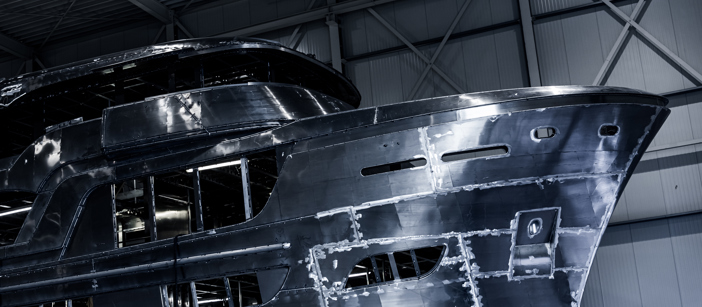
Aluminium production: efficiency meets innovation
Aluminium production is a dynamic process that has become increasingly efficient over time. The light yet strong metal plays a crucial role in a wide range of industries. In the context of growing global demand and an increasing focus on sustainability, innovative methods of aluminium production are propelling the market.

From bauxite to liquid metal
Although aluminium is the third most common element in the earth's crust, it never occurs in a solid form in nature and therefore requires complex manufacturing processes. Aluminum occurs exclusively in the form of chemical compounds, with bauxite, the weathering product of limestone and silicate rock, having the highest concentration of aluminium. The percentage of aluminium oxides in bauxite is often over 50, which makes it an important raw material for aluminium production. The most important bauxite mining locations are in Australia, China, Guinea, Brazil, and India, where mining is mainly carried out in open-cast mines.
The so-called Bayer process is used to extract pure aluminium oxide, also known as alumina, from bauxite. This alumina has such a fine consistency that it is almost liquid-like and can therefore be transported through pipelines. It is odorless and non-toxic and at this stage appears similar to fine, white sand. For further processing, the alumina is transported to specialized furnaces, known as aluminium smelters. In the fused-salt electrolysis process, the aluminium oxide is broken down into liquid aluminium and oxygen using the cryolite-alumina process with the help of electric current and carbon. The liquid metal produced can then be extracted from the furnace cells and poured into molds.
How aluminium is produced: insight into aluminium production

Fused-salt electrolysis, a central component in aluminium production, is known for its high energy consumption. State-of-the-art technologies and process optimizations are used to improve the energy efficiency of this process. These include, for example, the reduction of energy consumption through improved electrode materials and more efficient cell designs. Advances in automation and process control are also helping to reduce energy consumption and increase environmental compatibility.
Over 58 million tons of primary aluminium are produced worldwide every year, supplemented by over 16 million tons of recycled aluminium from scrap metal. Recycling aluminium is particularly efficient as it only requires around five percent of the energy needed to extract primary aluminium and does not result in any loss of quality. The range of products that can be made from recycled aluminium is enormous. From automotive and beverage cans to shipbuilding & transport and much more.
Modern processing methods in the production of aluminium
As a renowned aluminium rolling and recycling company, Speira relies on advanced processes to ensure aluminium products of the highest quality. Various methods are used in the further processing of aluminium. In addition to rolling and casting, other techniques such as deep drawing and extrusion are also important. In deep drawing, aluminium is formed into a specific shape, while in extrusion, aluminium is pressed through a shaped opening to create complex profiles. Aluminium can also be cold formed and machined using processes such as milling and turning.
Techniques such as grinding, brushing, polishing, and anodizing can be used for surface treatment. Anodizing, for example, is an electrochemical process that strengthens the natural oxide layer on the aluminium. This creates an even more resistant surface that both protects and visually enhances.

Sustainable aluminium production and recycling at Speira

Our vision of becoming a leading recycling company is at the heart of the aluminium production process. By using recycled materials, we can significantly reduce energy consumption – without sacrificing the quality of our rolled aluminium products. For products bearing the ORBIS label, we use at least 75 % external scrap. These also include particularly sustainable options that achieve a recycling rate of 85 % or 95 %. We have even had ORBIS certified in order to guarantee full transparency and take a big step towards our goal of being the industry benchmark in terms of sustainability by 2030.
Aluminium can be recycled an infinite number of times and the recycling process requires only 5 % of the energy needed to produce primary aluminium. The excellent recyclability of aluminium makes it the ideal material for a closed production cycle that is both ecologically and economically sustainable.
Get in touch Find the right contact here at Speira
Contact us today to find out more about innovative aluminium solutions from Speira. Together we are shaping a better future for generations to come.



